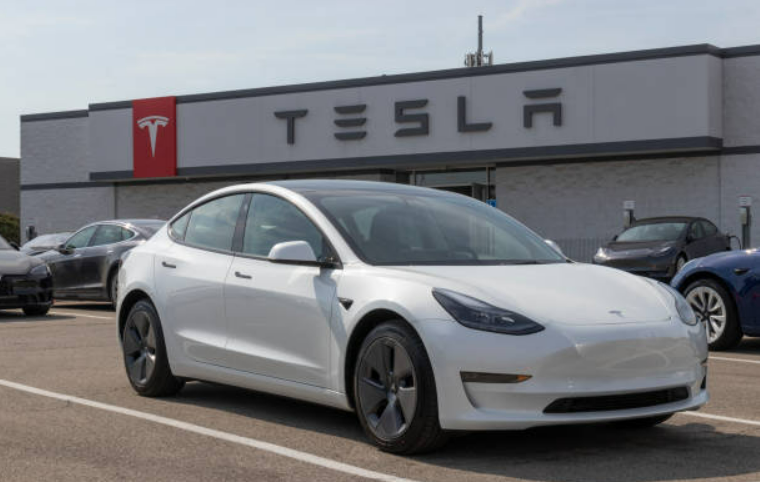Navigating the Green Divide: Gen Z vs. Gen X Perspectives on Sustainable Development and Green Technology
As environmental concerns gain urgency, generational perspectives on sustainable development—and particularly on green technology—offer a fascinating look into the shifting dynamics of ecological advocacy. Read more about what is Green Tech in our previous article.
Gen Z (born roughly between 1997 and 2012) and Gen X (born approximately between 1965 and 1980) each bring unique viewpoints and strategies to the table.
Their approaches to sustainability and green tech reflect their experiences, values, and technological environments.
Here’s how their thinking differs and aligns in the quest for a greener future.
Gen Z: The Digital Activists and Green Tech Enthusiasts
1. Digital Natives and Green Tech Innovation
Gen Z’s relationship with technology is pivotal in their approach to sustainability and green technology. This generation, raised with smartphones and social media, is adept at using digital platforms to advocate for environmental causes.
Green technology appeals strongly to Gen Z, as they see it as a crucial part of the solution. For instance, the rise of electric vehicles (EVs) has been heavily driven by Gen Z’s enthusiasm for cleaner transportation options.
Companies like Tesla have become symbols of this shift, with their advanced electric cars appealing to a generation concerned about climate change. Tesla’s success underscores how Gen Z’s digital activism and demand for green solutions are reshaping the auto industry.
2. Climate Anxiety and Green Technology Solutions
The climate anxiety experienced by Gen Z fuels their passion for innovative green technologies.
Many young people are not just advocating for change but are actively participating in technological advancements.
Startups like
- Impossible Foods and
- Beyond Meat, which offer plant-based alternatives to meat, reflect this trend.
Gen Z’s support for these companies highlights their preference for technologies that reduce environmental impact while offering practical solutions to everyday problems.
3. Preference for Sustainable and Tech-Savvy Brands
Gen Z’s preference for brands that align with their values extends to their interest in green technology.
They gravitate towards companies that incorporate sustainable practices and innovative technologies.
For example, companies like
- Google and
- Apple
have committed to using renewable energy for their operations and investing in green technology.
This commitment resonates with Gen Z, who view these companies as leaders in the transition to a more sustainable future.
Gen X: Practical Innovators and Green Technology Adopters
1. Balancing Sustainability with Technological Feasibility
Gen X’s approach to sustainability often involves integrating green technology into existing systems in a practical manner. They are more likely to adopt technologies that offer clear, incremental benefits.
For instance, Gen X has been instrumental in the adoption of solar panels and energy-efficient appliances.
The gradual improvement of solar technology, with its increased affordability and efficiency over the years, is a testament to Gen X’s practical approach to integrating green tech into everyday life.
2. Experience and Green Technology Implementation
Gen X’s professional experience and institutional knowledge play a crucial role in the adoption and implementation of green technology.
For example, during his tenure as CEO of Unilever, Paul Polman promoted sustainability initiatives that included the use of energy-efficient technologies in manufacturing processes.
His approach illustrates how Gen X leverages their experience to implement green technology solutions that enhance both environmental and economic outcomes.
3. Family-Centric and Community-Based Green Tech Solutions
Gen X’s focus on family and community influences their approach to green technology.
Many Gen X families are investing in home energy solutions like smart thermostats and energy-efficient lighting.
Companies like Nest and Philips Hue offer products that help manage energy use more effectively, aligning with Gen X’s practical approach to improving sustainability in their homes and communities.
Points of Convergence and Divergence
1. Shared Goals, Different Technological Approaches
Both Gen Z and Gen X are committed to sustainable development but approach green technology differently.
Gen Z often advocates for cutting-edge, transformative technologies, such as breakthrough electric vehicles or advanced renewable energy solutions.
In contrast, Gen X tends to focus on adopting and optimizing existing technologies, like solar panels and energy-efficient home appliances, that offer incremental improvements.

2. Influence of Technology and Adoption Patterns
Technology plays a significant role in shaping these generational perspectives.
Gen Z’s digital fluency enables them to quickly embrace and promote new green technologies through online platforms. For example, viral social media campaigns can boost the visibility of emerging green technology startups.
Gen X, on the other hand, uses their experience to implement and scale these technologies in practical ways, often within established systems and infrastructures.
3. Adaptability and Technological Integration
Both generations demonstrate adaptability in their approach to green technology.
Gen Z’s push for innovative solutions complements Gen X’s focus on practical, incremental improvements.
For instance, while
- Gen Z may champion the latest advances in battery technology,
- Gen X might focus on integrating these technologies into existing energy grids or manufacturing processes.
A Unique Twist: The Role of Green Technology in “Biomimicry”
One intriguing aspect of green technology is biomimicry, where innovations are inspired by nature’s design. This approach leads to sustainable solutions by mimicking natural processes.
For example, self-cleaning surfaces modeled after the lotus leaf repel dirt and water (better known Lotus effect), leading to coatings for buildings and solar panels that require less maintenance. According to a blog “The self-cleaning windshield with microvilli surface is being elaborated now. Such windscreen does not require wipers.”
Superhydrophobic surfaces offer transformative potential due to their extreme water-repellent properties. Inspired by nature’s Lotus effect, these surfaces feature high contact angles and low drag, making them ideal for applications like self-cleaning windows, exterior paints, and textiles. By mimicking the rough, waxy texture of lotus leaves, these surfaces prevent water from adhering and reduce friction in fluid flow, showcasing significant advancements in both natural and engineered materials.
Similarly, energy-efficient ventilation systems inspired by termite mounds use natural airflow patterns to reduce energy consumption in buildings.
Biomimicry not only enhances green technology but also highlights the connection between technology and environmental science, emphasizing the value of preserving nature for future innovations.
Green Tech Startups
Related to Gen Z
- Beyond Meat
- Focus: Plant-based meat alternatives
- Why Gen Z: Appeals to their preference for sustainable, ethical food choices and innovative solutions to reduce environmental impact.
- Impossible Foods
- Focus: Plant-based meat
- Why Gen Z: Known for its cutting-edge approach to creating meat alternatives, aligning with Gen Z’s interest in disruptive, eco-friendly technologies.
- Nio
- Focus: Electric vehicles
- Why Gen Z: Gen Z’s strong inclination toward sustainable transportation and tech-savvy solutions makes Nio’s electric vehicles highly appealing.
- Climeworks
- Focus: Carbon capture
- Why Gen Z: The direct air capture technology represents a high-tech, forward-thinking approach to combating climate change that resonates with Gen Z’s urgency for action.
- Tesla
- Focus: Electric vehicles and renewable energy
- Why Gen Z: Tesla’s innovation in electric vehicles and solar technology aligns with Gen Z’s enthusiasm for advanced, clean technologies and sustainability.

Related to Gen X
- Northvolt
- Focus: Sustainable batteries
- Why Gen X: Gen X values practical, scalable solutions; Northvolt’s focus on environmentally friendly battery technology fits well with their pragmatic approach.
- Ecolab
- Focus: Water and energy solutions
- Why Gen X: Ecolab’s extensive experience and focus on practical water and energy management solutions resonate with Gen X’s preference for incremental, effective improvements.
- Pivot Bio
- Focus: Agricultural biotechnology
- Why Gen X: Offers practical solutions for improving agricultural sustainability, reflecting Gen X’s focus on enhancing traditional systems with innovative tech.
- Zero Mass Water
- Focus: Solar-powered water generation
- Why Gen X: Provides a practical, resource-efficient technology for water purification, aligning with Gen X’s focus on integrating sustainable tech into existing infrastructures.
- Oatly
- Focus: Plant-based dairy alternatives
- Why Gen X: Appeals to Gen X’s growing interest in sustainable consumer products that offer practical alternatives to traditional dairy while addressing environmental concerns.
Conclusion
The differing yet complementary perspectives of Gen Z and Gen X on sustainable development and green technology highlight the multifaceted nature of environmental advocacy.
Gen Z’s enthusiasm for cutting-edge innovation and digital activism contrasts with Gen X’s practical, experience-driven approach to integrating green tech.
Together, these perspectives offer a robust framework for addressing environmental challenges and advancing the transition to a sustainable future.
By understanding and integrating these diverse viewpoints, society can leverage the strengths of both generations to foster more effective and innovative solutions to our most pressing environmental issues.
